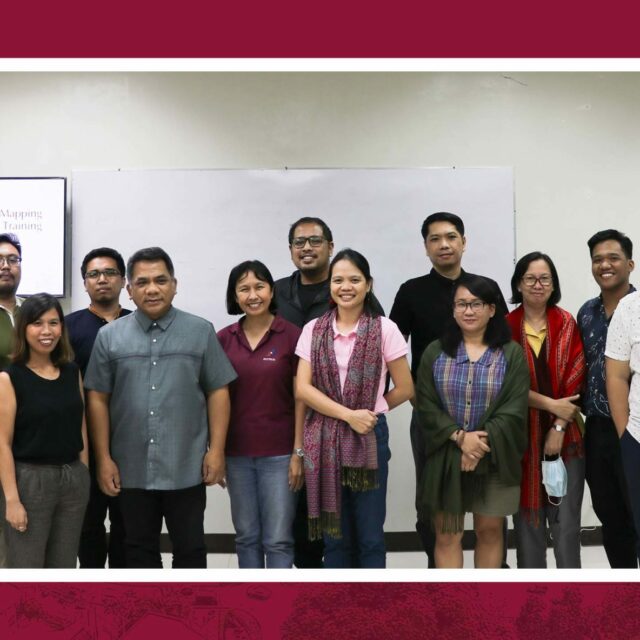The UPLB Department of Social...
DSS trains new cultural mapping facilitators

Ten faculty members from the UPLB Department of Social Sciences (DSS) are now ready to help local government units (LGUs) and communities map their respective cultural profiles after finishing a four-day in-house training workshop about cultural mapping.
At the Cultural Mapping Trainers’ Training-Workshop of DSS held on July 3-6 at the College of Arts and Sciences Annex 1 Building, these faculty members from different social science disciplines learned about the fundamental knowledge and skills that will help them assist LGUs and communities in the country in doing the inventory of their cultural properties.
The said task for the LGUs is envisioned to contribute to the Philippine Registry of Cultural Property, as articulated in the Republic Act No. 10066, also known as the National Cultural Heritage Act of 2009. In addition, it also brings greater awareness of the Philippines’ cultural heritage and advocates its protection and promotion.
The four-day training-workshop was composed of lecture-discussions, field work inside the campus, and presentations. The fieldwork component served as a simulation activity for the participants to experience mapping and assessing cultural properties in the context of UPLB as a community.
Serving as training resource persons and facilitators were Bernardo M. Arellano III, a faculty member at the DSS History Division and Divine G. Arawiran, a project management professional. Both previously worked at the National Commission for Culture and the Arts and are experienced cultural mapping facilitators.
The upcoming undertakings of the DSS’ new pool of cultural mapping facilitators will serve as one of the public service activities of the department. On the last day of the training, they were already able to identify future partner LGUs to assist in cultural mapping.
In his message during the culmination of the trainers’ training, Chancellor Jose V. Camacho, Jr. commended the DSS for its commitment to serve the community, which is part of UP’s mandate as the country’s only national university.
He expressed confidence that with the department’s roster of faculty members, the DSS can make the social sciences more relevant through more significant, more visible, and more impactful projects within the university and, more importantly, in Southern Luzon.
The DSS Public Service Committee spearheaded the in-house training. (Mark Jayson E. Gloria, with reports from Kim Riener D. Casiño)
Related Post
Ginanap ang Cultural Mapping Training...
(12 cum laude, 23 magna...
